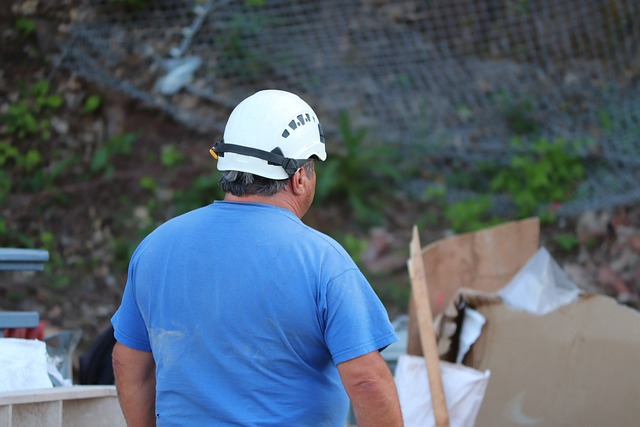Share This Article:

N.Y. Construction Worker’s ‘Incredible’ Tale of Falling Concrete Turns Petition to Dust
02 May, 2023 Chris Parker

Woodside, NY (WorkersCompensation.com). It pays to take photographs in the aftermath of an employee’s injury. The photos could ultimately tell a more convincing story than the employee’s own words when it comes to the severity of the injury.
The construction worker in Flores v. Millennium Services, LLC, No. 534208 (N.Y. Sup. Ct. App. Div. 04/20/23), claimed that he was hit by a falling piece of concrete while he performed work for his employer in an elevator shaft. The chunk of concrete, he ultimately claimed, was large enough that it not only scratched his back, but seriously injured his shoulder and both knees.
The construction worker was awarded benefits for the scratch. He then sought to amend his petition to include the injuries to his left shoulder and knees.
A New York appeals court acknowledged that the worker provided an independent medical evaluation stating that he incurred the shoulder and knee injuries during the elevator incident and that those injuries were causally related to the worker’s employment.
The court pointed out, however, that the medical evaluation hinged, in part, on the construction worker’s “incredible” tale of what occurred in the elevator shaft. The worker claimed he was cleaning up debris on a demolition project when a piece of concrete hit him on the back, which he claimed fell from the second or third floor. He said that when the concrete hit him, he fell on his knees and then to his left, hitting his shoulder on the metal allegedly resulting in injuries to his knees and left shoulder.
The problem with the worker’s explanation of what occurred during the incident was that several pieces of evidence told a very different story of what occurred that day:
A coworker who was in the shaft with the construction worker at the time of the accident testified that he did not see the worker get hit, saw only small pieces of debris on the floor of the elevator shaft, and did not see the worker fall on his knees.
The project manager testified that, upon learning of the accident, he inspected the elevator shaft and observed no large concrete or debris that would cause the injury to claimant's back.
The absence of any large concrete or debris was further supported by the pictures of the elevator shaft floor that the project manager took about an hour after the incident.
The project manager also took a picture of the scratch on the employee’s back and noted that there was no bleeding.
“Although the medical opinions concluded that the alleged injuries were causally-related to the accident, the Board noted that the medical opinions were ‘based on the incredible history provided by ... claimant’ and, as such, could not provide support to substantiate the claims for the additional injuries and disability,” the court wrote.
The court rejected the worker’s argument that he was entitled to the presumption under Workers' Compensation Law § 21 (1) that an accident occurred in the course of employment. While the presumption exists, the court observed, an employee cannot use it “to establish that an accident occurred in the first instance.”
Keep up with the law by signing up for Simply Research
AI california case management case management focus claims compensability compliance courts covid do you know the rule emotions exclusive remedy florida FMLA glossary check Healthcare health care hr homeroom insurance insurers iowa leadership medical NCCI new jersey new york ohio osha pennsylvania roadmap Safety state info technology texas violence WDYT west virginia what do you think women's history women's history month workcompcollege workers' comp 101 workers' recovery Workplace Safety Workplace Violence
Read Also
About The Author
About The Author
- Chris Parker
More by This Author
Read More
- Apr 28, 2025
- Liz Carey
- Apr 28, 2025
- Frank Ferreri
- Apr 27, 2025
- Frank Ferreri
- Apr 27, 2025
- Chris Parker
- Apr 27, 2025
- Chris Parker
- Apr 25, 2025
- Liz Carey




